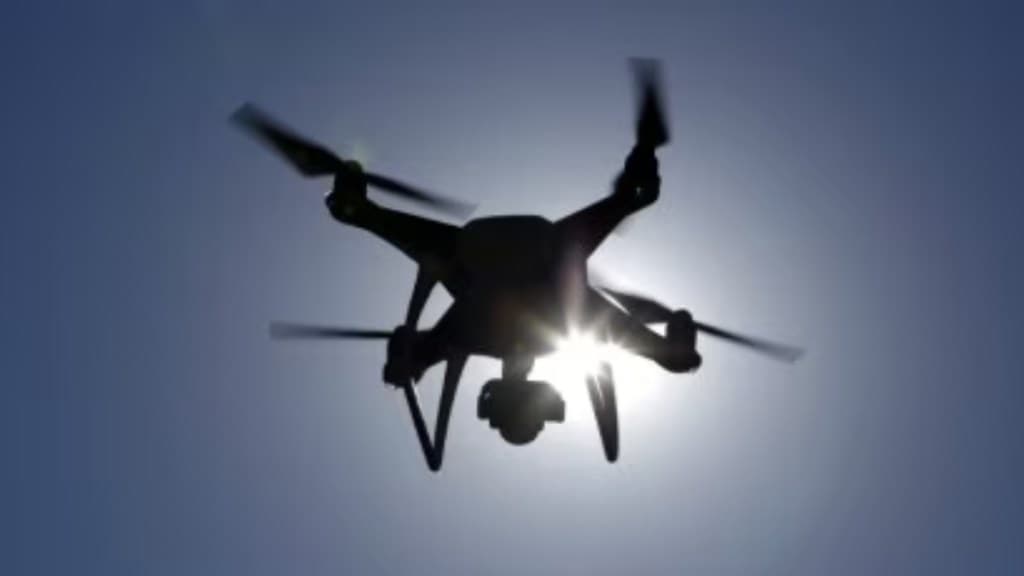In a bold move, the Ministry of Defence (MoD) has frozen an order for logistics drones meant for deployment along India’s critical borders with China. This decision follows alarming intelligence reports highlighting the presence of Chinese components in these drones, sparking serious concerns about data security and national sovereignty. The freeze marks a significant shift in India’s defense procurement policies, as the country confronts the potential dangers posed by foreign-made electronics embedded in its military equipment.
Intelligence Agencies Sound the Alarm
Indian intelligence agencies have flagged the use of Chinese-made components in drones purchased from domestic private manufacturers. These drones were to be deployed in sensitive border regions, including the northern and eastern sectors, but the discovery of Chinese electronics raised immediate red flags. The primary concern revolves around the risk of data transfer, with officials fearing that Chinese components could enable espionage or data leaks that would jeopardize military operations.
“The risks are too high,” a senior Army officer commented. “We are working on formulating an appropriate methodology to prevent any Chinese components from making their way into military drones. This is a critical issue for our national security, and the potential data threats associated with Chinese electronics cannot be ignored.”
The MoD’s Crackdown on Chinese Parts
In a letter issued earlier this year, the MoD warned major industry bodies such as the Federation of Indian Chambers of Commerce and Industry (FICCI), Assocham, and the Society of Indian Defence Manufacturers (SIDM) to notify their member companies of the risks of using Chinese components. Despite existing defense procurement rules that prohibit their use, many manufacturers were relying on self-certification to assert that their products were free of foreign components.
What is Self-Certification?
Major General CS Mann, Additional Director General of the Army Design Bureau (ADB), explained, “Self-certification is one of the methods. Deliberations are on. We are working with the Department of Defence Production, and an appropriate methodology of identifying and certifying these components will come into effect soon.”
While a specific timeline has not yet been set, Mann emphasized the urgency of the situation, stating, “We are prioritizing the development of a concrete framework to ensure no foreign, particularly Chinese, components infiltrate our defense systems.”
Industry Weighs In
The Indian defense industry is now grappling with the implications of the MoD’s advisory. The halt in drone orders has sparked a deeper discussion about India’s reliance on foreign-made parts, and the pressing need to build a robust domestic manufacturing ecosystem.
According to Lt Gen Inderjit Singh (Retd.), Strategic Advisor, ideaForge Technology, the MoD’s directive is a wake-up call for the country. “The integration of foreign intelligent components, particularly from land border-connected countries like China, poses significant risks, potentially undermining the effectiveness of critical military systems,” Singh explained.
For Singh, the issue isn’t just about economic pragmatism—it’s a strategic necessity. “By cultivating home-grown drone technologies, India reduces its vulnerability to supply chain disruptions and security breaches. This ensures that drones deployed for operations are secure and tailored to our unique needs,” he added.
The MoD’s push for indigenization also dovetails with India’s broader “Make in India’ initiative. As Singh noted, “This approach aligns seamlessly with promoting innovation within the domestic defense industry. It not only boosts technological sovereignty but also creates jobs and fosters a culture of self-reliance.”
Strengthening Counterinsurgency and Border Security
The use of drones for military purposes has been revolutionary, particularly in counter-insurgency and border surveillance operations. However, Singh cautions that the use of foreign parts, especially from adversarial nations, threatens to compromise the very systems meant to protect India.
“The Indian Army’s focus on modern warfare technologies, such as drone warfare, reflects the changing nature of conflicts where technology plays a central role,” Singh stated. “The MoD must urgently invest in military drones to enhance counter-insurgency and counter-terrorism capabilities, protect national sovereignty, and ensure citizen safety against evolving threats.”
With upcoming elections in Jammu & Kashmir and the return of peace and stability to the region since the abrogation of Article 370, Singh also called for increasing the density and frequency of drone operations in these areas. “It’s imperative that both the number of UAVs and their operational frequency increase to yield better results,” he said.
Looking Ahead
The MoD’s decision to freeze drone orders sends a strong message: the presence of foreign components, particularly from China, in India’s defense systems is unacceptable. As India works toward greater indigenization of its defense technologies, the current controversy highlights the pressing need for a reliable and secure domestic supply chain.
The ongoing deliberations within the Army and the defense ministry to create an effective framework for certifying components reflect the seriousness of the issue. With national security at stake, the government’s move to prioritize indigenous drone development is not just a response to immediate concerns but a critical step toward securing India’s military future in an era of evolving technological threats.

